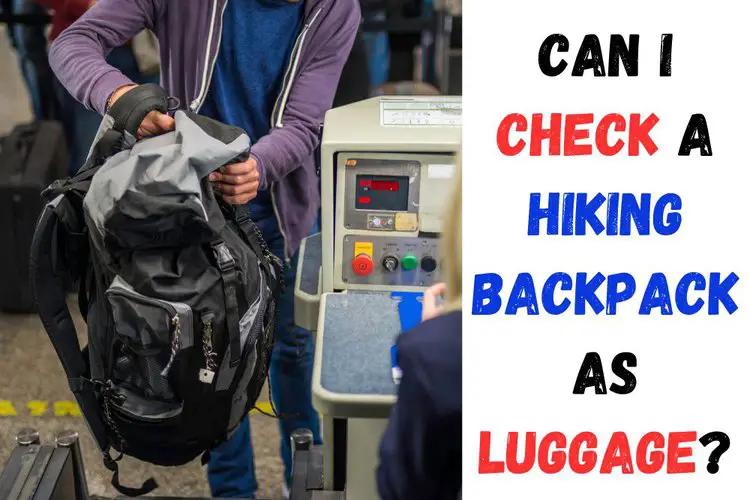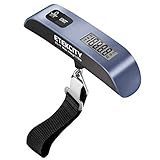As someone who enjoys hiking, one of the essential pieces of equipment you need is a hiking backpack.
A good hiking backpack is designed to carry everything you need for your hike, from food and water to extra clothing, first aid supplies, and camping gear.
But what happens when you need to travel to your hiking destination by plane? Can you check your hiking backpack as luggage?
In this article, we’ll explore the answer to this question and take a look at the policies of the most popular airline in the US.
Contents
Yes, you can check a hiking backpack as luggage
The answer to the question of whether you can check a hiking backpack as luggage is yes.
Most airlines allow you to check in your backpack, but there are some considerations to keep in mind.
For example, the size and weight of your backpack may impact whether you can check it in or not. Additionally, some airlines may have specific policies regarding the type of backpacks that are allowed as checked luggage.
Let’s take a closer look at the policy of the most popular airline in the US, American Airlines.
According to their website, American Airlines allows passengers to check in hiking backpacks as long as they meet the airline’s size and weight requirements.
The maximum dimensions for checked bags on American Airlines are 62 inches (157 cm) in total length, width, and height, and the maximum weight allowed is 50 pounds (23 kg) per bag.
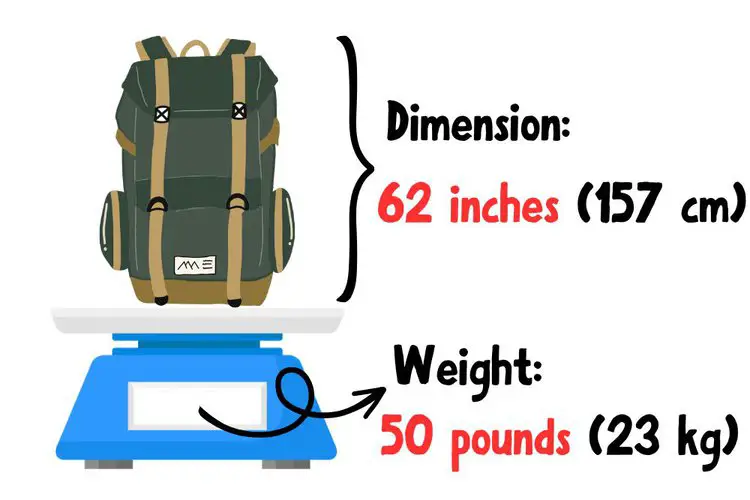
If your hiking backpack exceeds these dimensions or weight limit, you may be charged an extra fee or be required to check it in as oversized or overweight baggage.
It’s worth noting that American Airlines also has some specific policies regarding the contents of your hiking backpack.
For example, the airline prohibits the transportation of flammable items, such as camping fuel or propane tanks. Additionally, sharp objects like knives or hiking poles may need to be packed in checked luggage rather than carried on board.
To ensure that your hiking backpack is accepted as checked luggage, it’s a good idea to pack it properly.
Make sure to remove any items that are prohibited by the airline, and pack your backpack in a way that protects its contents from damage. You may also want to consider using a luggage lock to secure your backpack during transit.
Step-by-step instructions to check your hiking backpack
1. Research airline policies:
Before packing your hiking backpack, research the specific policies of the airline you’ll be flying with.
Check their website for information on size and weight restrictions, as well as any prohibited items or specific requirements for checked luggage.
Propane, butane, and other types of camping fuel are typically prohibited in checked or carry-on luggage due to their flammable nature. Some airlines may allow small amounts of fuel in checked luggage if it is properly packaged and declared.
2. Pack your backpack properly
Once you know the airline’s policies, pack your backpack properly. Remove any prohibited items and pack your gear in a way that protects it from damage.

Consider using packing cubes or compression sacks to organize and compact clothing and gear, and wrap fragile items in clothing to protect them during transit.
Last update on 2023-11-11 / Affiliate links / Images from Amazon Product Advertising API
If your backpack has external straps or attachments, consider removing them or securing them to prevent damage.
3. Weigh your backpack
- High-accuracy sensor and rubber-textured handle surface. Capacity: 110lb/50kg, Graduation: 0.1lb/50g
- Avoid Overweight Fees: Hook your suitcased for instant weight and save time before you wait in line
- Built for Travel: Weight before you go and fit the scale in pockets without adding excessive weight
Last update on 2023-11-11 / Affiliate links / Images from Amazon Product Advertising API
Use a luggage scale to weigh your backpack before heading to the airport. Make sure it meets the airline’s weight restrictions, which are typically around 50 pounds (23 kg) for checked luggage.

4. Label your backpack
- EASILY IDENTIFY YOUR LUGGAGE with original art (protected by copyright)
- INCLUDES ID CARD AND FITS BUSINESS CARD Simply write information directly onto the card
- BENDABLE, FLEXIBLE AND STURDY: Made of quality durable rubberized PVC
Last update on 2023-11-11 / Affiliate links / Images from Amazon Product Advertising API
Add a luggage tag with your contact information to your backpack. Consider labeling it with a bright ribbon or luggage strap to make it easier to spot on the baggage carousel.
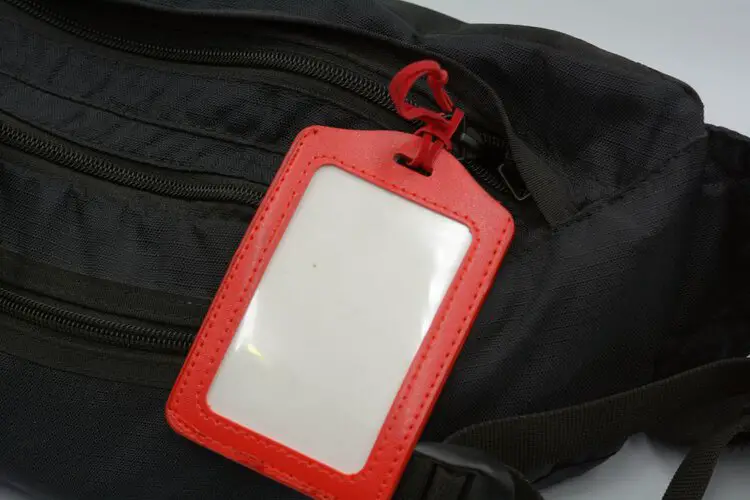
5. Arrive at the airport early:
Make sure to arrive at the airport with plenty of time to spare, as checking a backpack may take extra time.
Head to the check-in counter for your airline, and let the agent know that you’ll be checking a hiking backpack.
6. Pay necessary fees:
If your backpack exceeds the airline’s size or weight restrictions, you may need to pay an extra fee or check it in as oversized or overweight baggage.
Make sure to have a credit card or cash on hand to pay necessary fees.

7. Receive your baggage claim ticket:
The agent will give you a baggage claim ticket, which you’ll need to keep until you receive your backpack at your destination.
8. Drop off your backpack:
Once you’ve paid any fees and received your baggage claim ticket, drop off your backpack at the oversized baggage counter or hand it over to the agent.
Make sure to double-check that the luggage tag with your contact information is attached securely.
9. Retrieve your backpack at your destination:
When you arrive at your destination, head to the baggage claim area and wait for your backpack to appear on the carousel.
Make sure to check the luggage tag to confirm that it’s your backpack, and then grab it and head to your next destination!
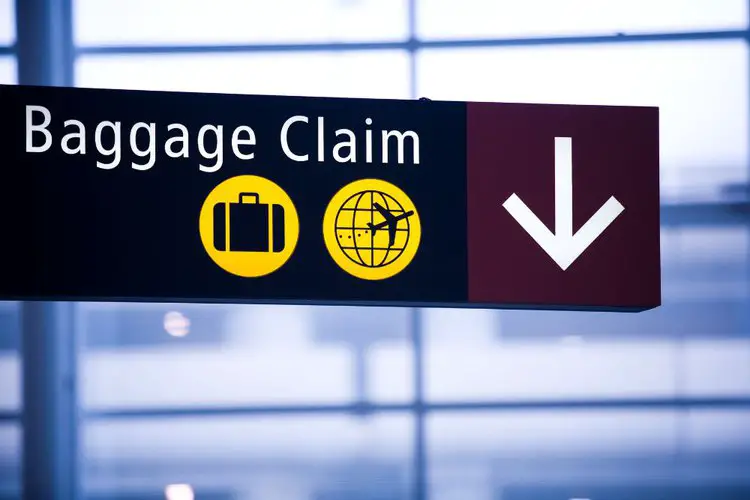
By following these steps, you should be able to successfully check your hiking backpack as luggage and ensure that it arrives safely at your destination.
Last words
In conclusion, if you’re planning to fly to your hiking destination, you can generally check in your hiking backpack as long as it meets the size and weight requirements of the airline.
It’s also important to keep in mind any specific policies regarding the contents of your backpack and to pack it properly to ensure its safe transit.
With these considerations in mind, you can bring your essential hiking gear with you on your next adventure, no matter where your travels take you.

